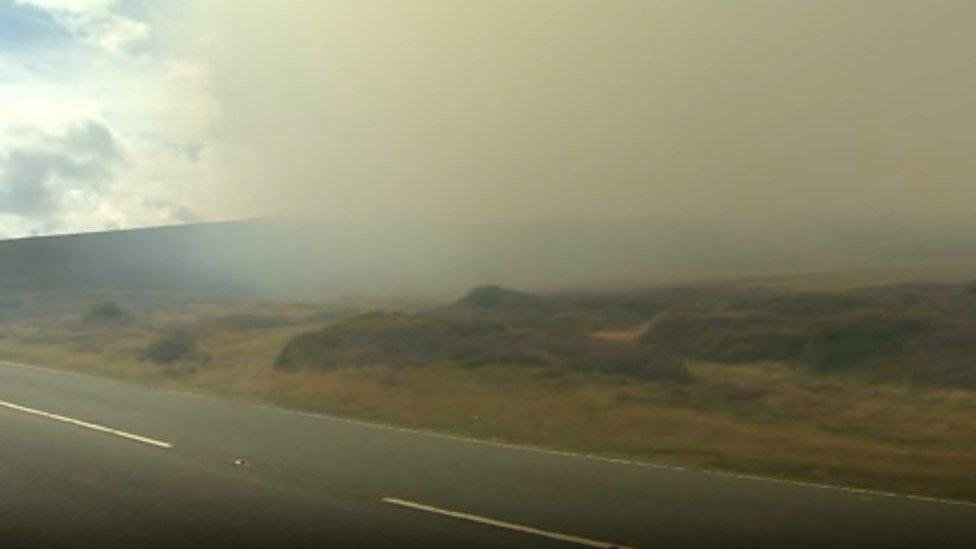Llantysilio mountain fire: Call for inquiry after 40-day blaze
- Published
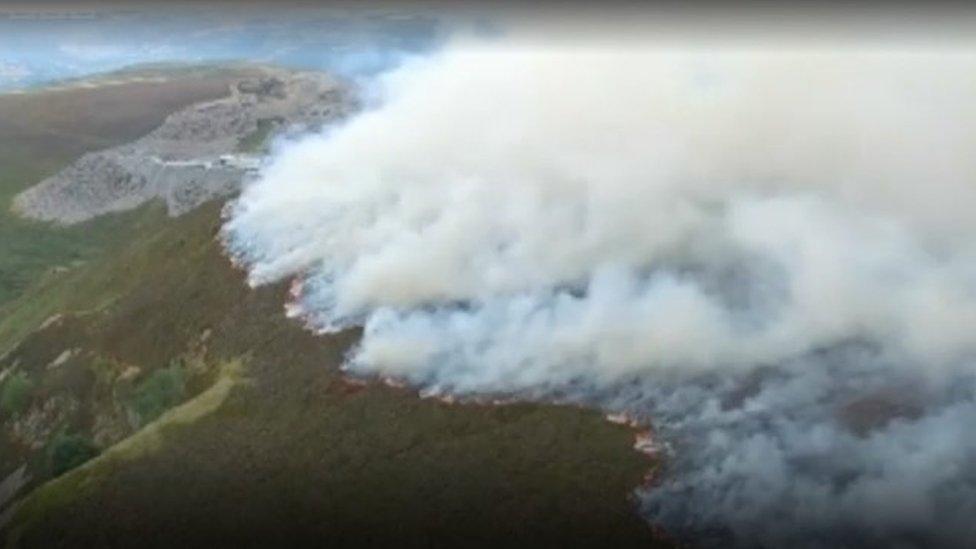
At its height the fire was tackled by 60 firefighters
An inquiry is needed to find out why it took more than 40 days to put out a mountain fire, a councillor has said.
The blaze at Llantysilio, Denbighshire, broke out on 11 July and at its height was tackled by 60 firefighters.
Merfyn Parry, who represents Llandyrnog, said he wanted North Wales fire service, Natural Resources Wales (NRW) and Denbighshire council to explain how the fire was dealt with.
The fire service said disruption was an inevitable part of any large incident.
NRW said it had cut back vegetation on the mountain in recent years.
Local businesses were affected while the Horseshoe Pass, a popular visitor spot, was closed on many of the days the fire burnt.
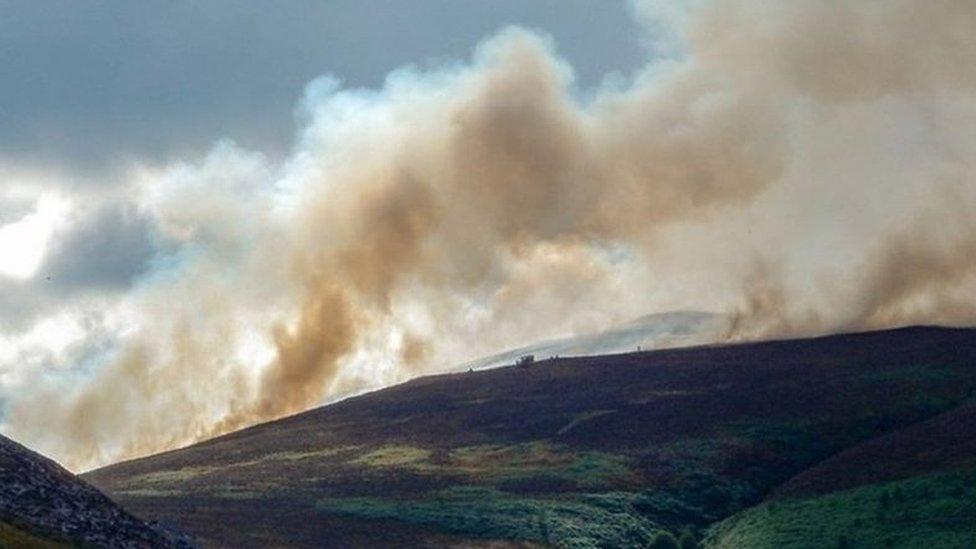
The fire had been burning underground and flared up for a second time
Mr Parry said: "It shouldn't have been allowed to get out of hand in this way and we want to know why. Local people feel they were not properly informed."
He has now made a formal request for the issue to be called in for scrutiny by the council.
About 20 local people attended a meeting at a pub in Llandegla on Monday night to discuss the impact and handling of the fire.
Some farmers said they had offered water, equipment and their expertise to the fire crews but were rejected.
Others said if they were allowed to burn the bracken in a controlled way the fire may never have happened.
Farmer Tudor Edwards said: "I've got 300 sheep on the mountain and no food in the fields. Fairly little has been done to help the residents."
A mother told how she had sent her two young sons away for two weeks fearing the smoke would damage their lungs.
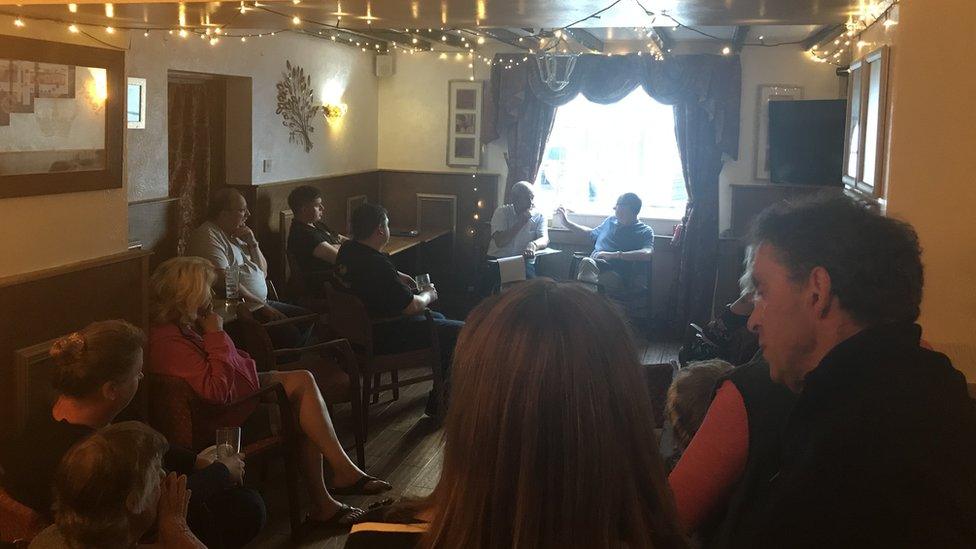
About 20 people, attended a meeting at the Crown Tavern in Llandegla
Another woman said she had been without water for days as a result of the firefighters tapping into her pipes.
Some business owners sais they were angry over a "lack of communication" between local agencies and the public and that there was a lack of support to keep fire watchers at bay.
Stuart Millington, senior operations manager for North Wales Fire and Rescue Service, said he was proud of the crews who had "worked tirelessly" to deal with the fire.
"The scale of operations and the efforts required to bring this type of incident under control should not be underestimated and I would like to commend our firefighters for working extremely hard, for extended periods, during excessively high temperatures and over arduous terrain," he said.
"Whilst I understand some of the frustrations that have been expressed, unfortunately disruption is an inevitable part of any large incident."
Dawn Beech, acting operations manager for north east Wales at NRW, said the organisation had been working with Denbighshire Countryside Services to cut back vegetation and create fire breaks to stop the flames from spreading.
"Mynydd Llantysilio is really important to both people and wildlife," she said.
"We have worked with Denbighshire countryside service, RSPB and farmers over recent years to cut heather for the grouse, to improve grazing areas for sheep and to help reduce fire risk.
"Approximately half the mountain was burnt and the peatland areas have been particularly badly affected.
"When we have confirmation that the fires are out we will carry out a full survey of the mountain to see how we can help the area recover, and we'll be working with the other organisations involved to carry out a review of our response."
- Published17 August 2018
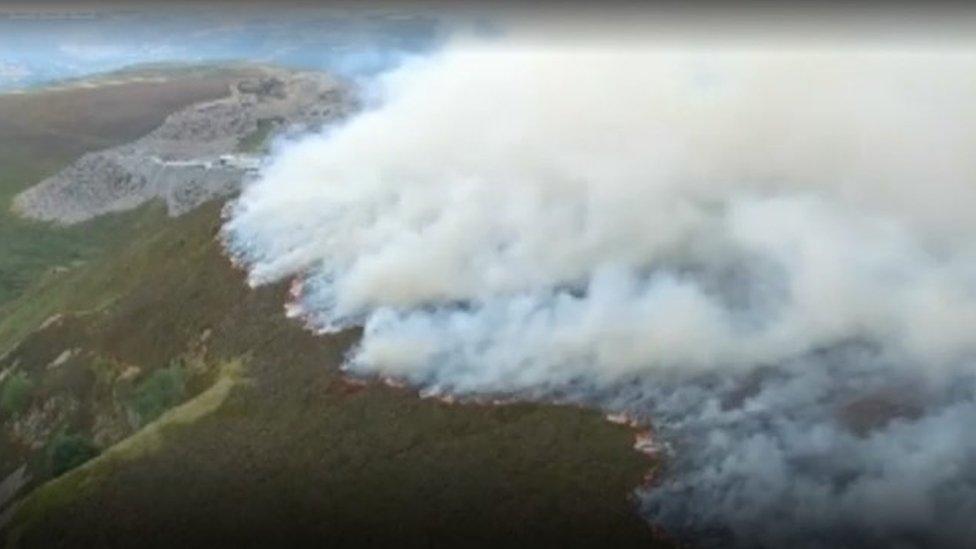
- Published9 August 2018
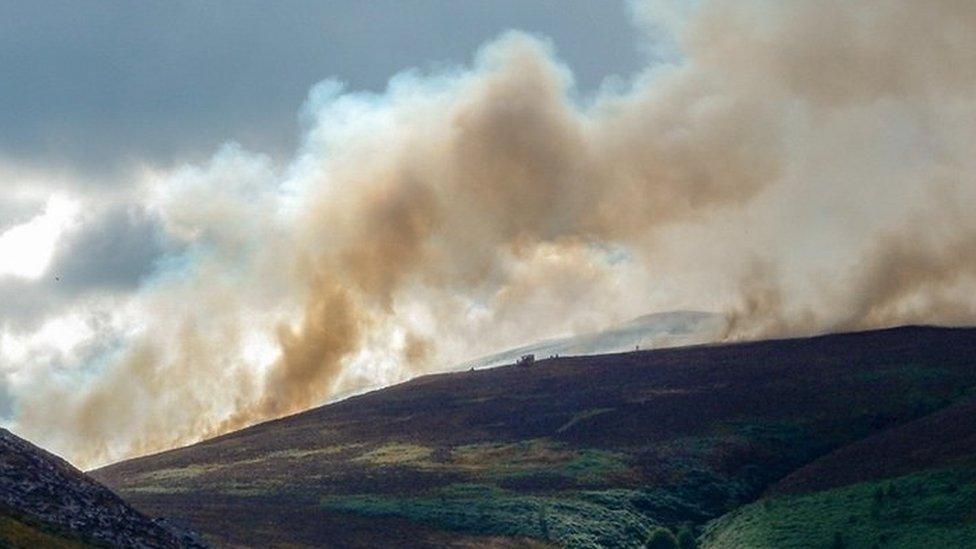
- Published30 July 2018

- Published7 August 2018

- Published7 August 2018
